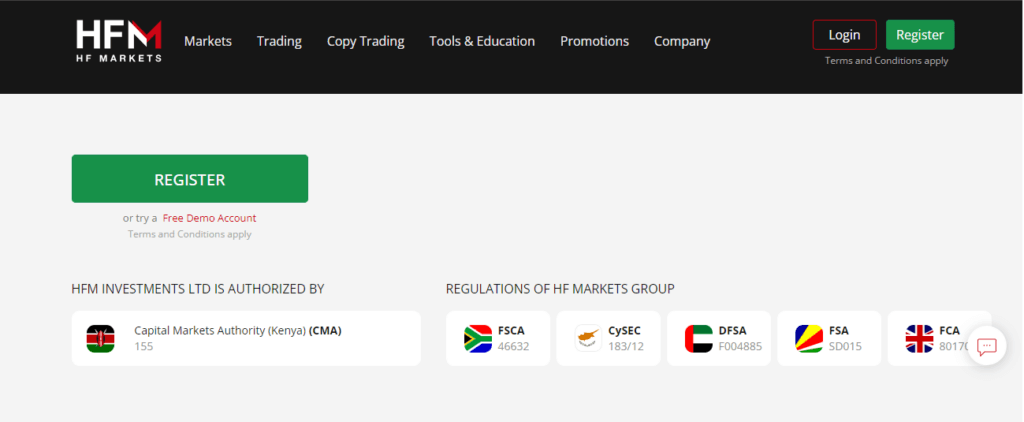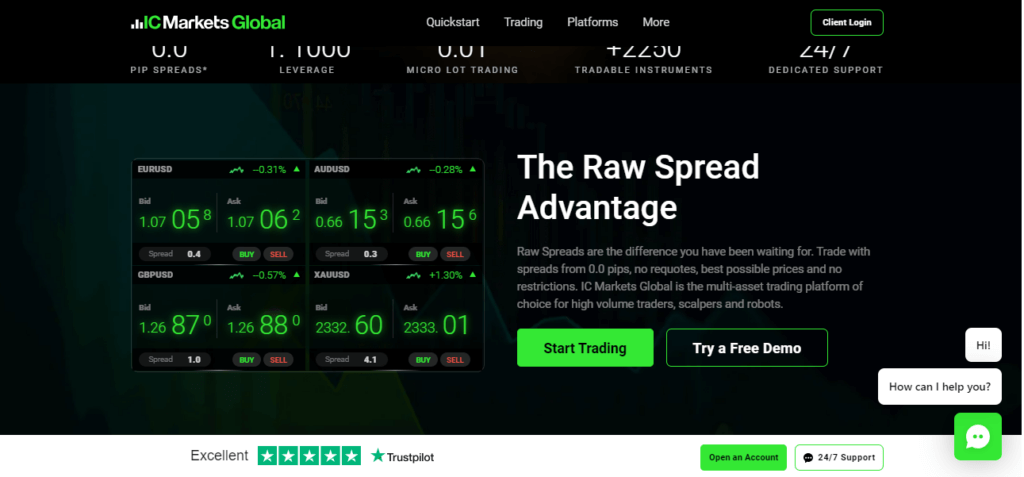In forex trading, choosing the right broker is crucial for success. One important factor to consider is the commission structure offered by brokers. Zero-commission trading has become increasingly popular among forex traders, allowing them to maximize their profits by eliminating additional fees. This article will explore the concept of zero-commission trading, discuss its benefits and drawbacks, and introduce you to three of the best brokers with zero commission.
Here is a selection of the best brokers with zero-commission trading.
Features | Minimum Deposit | Visit | |
* CMA regulated * 1:1000 leverage | |||
* CMA regulated * 1:500 leverage * Tight spreads | |||
* 1:1000 leverage * 950+ instruments * Copy trading | |||
* 1:1000 leverage | |||
* 1:500 leverage | |||
* 1:500 leverage | |||
*1:500 leverage | |||
* Cryptotrading | |||
* Low minimum deposit | |||
* 1:500 leverage * 300+ instruments * Low minimum deposit | |||
* 1:1000 leverage | |||
* 1:777 leverage | |||
* 1:500 leverage * 800+ instruments * African Broker | |||
* 1:1000 leverage | |||
* 1:1000 leverage |
Contents
- 1 Understanding Zero Commission Trading
- 2 How Zero Commission Trading Works
- 3 What is Commission in Forex and How Does it Work?
- 4 Pros and Cons of Zero Commission Trading
- 5 Top 3 Forex Brokers with Zero Commission
- 6 1. HFM
- 7 Zero Commission Trading Conditions
- 8 2. Pepperstone
- 9 Zero Commission Trading Conditions
- 10 3. IC Markets
- 11 Zero Commission Trading Condition
- 12 Forex Commission vs. Spread Pricing Models
- 13 Commission-Based Pricing
- 14 Spread-Based Pricing
- 15 Differences Between Commission and Spread
- 16 How is Commission in Forex Calculated?
- 17 What is the Commission Per Lot in Forex?
- 18 Bottom Line
Understanding Zero Commission Trading
Zero commission trading refers to a pricing model where forex brokers do not charge additional fees for executing trades on behalf of their clients. Instead of charging a commission, these brokers profit through the bid-ask spread, which is the difference between a currency pair’s buying and selling price.
How Zero Commission Trading Works
In traditional forex trading, brokers often charge a commission on each trade, a percentage of the total trade value. The broker adds this commission to the spread, increasing the overall cost of trading. With zero-commission trading, the broker eliminates this additional fee, and the cost of trading is built into the spread.
For example, if a broker offers a EUR/USD spread of 1.5 pips with zero commission, the trader will only pay the spread when opening and closing a position. In contrast, a broker that charges a commission may offer a lower spread, but the total cost of trading will be higher due to the added commission fee.
What is Commission in Forex and How Does it Work?
Commission in forex is a fee charged by brokers for executing trades on behalf of their clients. It is typically charged in one of two ways:
- A percentage of the trade value
- A fixed amount per lot traded
When a trader opens a position, the commission is deducted from their account balance. The commission is charged when opening and closing a trade; each action represents a separate transaction.
In the case of zero-commission forex brokers, the commission is not charged separately. Instead, the broker’s costs are built into the spread, the difference between the bid and ask prices of a currency pair. Traders effectively pay the commission through the slightly higher spread.
Pros and Cons of Zero Commission Trading
| Pros | Cons |
| Lower trading costs | Higher spreads |
| Zero commission brokers allow traders to save money on each trade they execute by eliminating separate commission fees. This can be particularly beneficial for frequent traders or those who trade large volumes, as the savings can increase quickly over time. | Some zero-commission brokers offer higher spreads than brokers that charge commissions to compensate for the lack of commission revenue. In this regard, traders should carefully compare the spreads of different brokers to ensure they get a competitive deal. |
| Simplified pricing structure | Limited range of instruments |
| Zero commission brokers build their costs into the spread, providing a single, all-inclusive price for each trade. This simplified pricing structure makes it easier for traders to calculate their potential profits and losses, as they only need to consider the spread. | Not all zero-commission brokers offer a wide variety of trading instruments. Some may focus primarily on forex, while others may have a limited selection of commodities, indices, or cryptocurrencies. Therefore, traders seeking diversification should verify that their chosen broker offers the instruments they wish to trade. |
| Attractive for high-volume traders | Potential for hidden costs |
| The absence of commission fees leads to significant savings for traders who execute many trades. This can be especially advantageous for scalpers and day traders who rely on making numerous trades with smaller profit margins. Some zero-commission brokers offer additional benefits for high-volume traders, such as tighter spreads or access to exclusive trading tools and resources. | While zero-commission brokers do not charge separate commission fees, traders should be aware of potential hidden costs. Some brokers may charge additional fees for certain services, such as inactivity fees for dormant accounts or withdrawal fees for removing funds. It’s, therefore, essential to thoroughly review a broker’s terms and conditions to understand all potential costs. |
Top 3 Forex Brokers with Zero Commission
Now that we understand the advantages and disadvantages of zero commission trading let’s take a closer look at three of the best forex brokers that offer this feature.
1. HFM
HFM is a well-established, CMA-regulated broker serving clients since 2010. They offer various trading instruments, including forex, commodities, indices, and cryptocurrencies.
Zero Commission Trading Conditions
- Leverage up to 1:1000
- Tight spreads starting from 0.0 pips
- Access to over 1200 trading instruments
- Choice of trading platforms, including MetaTrader 4 and 5, as well as their proprietary HF App
- Negative balance protection
- Free educational resources and market analysis
- 24/5 customer support

2. Pepperstone
Pepperstone is an Australian-based, CMA-regulated broker founded in 2010. They are known for their excellent trading conditions and have won numerous awards for their services.
Zero Commission Trading Conditions
- Leverage up to 1:500
- Tight spreads starting from 0.0 pips
- Access to over 150 trading instruments
- Choice of trading platforms, including MetaTrader 4 and 5, as well as cTrader
- Fast and reliable trade execution
- Free VPS hosting for high-volume traders
- Educational resources and market analysis

3. IC Markets
IC Markets is a leading forex broker founded in 2007. It is regulated by several authorities, including CySEC and ASIC, and is known for its ultra-low latency and wide range of trading instruments.
Zero Commission Trading Condition
- Leverage up to 1:500
- Tight spreads starting from 0.0 pips
- Access to over 10,000 trading instruments
- Choice of trading platforms, including MetaTrader 4 and 5, as well as cTrader
- Ultra-fast trade execution with low latency
- Deep liquidity from top-tier banks and financial institutions
- Comprehensive educational resources and market analysis

Forex Commission vs. Spread Pricing Models
In the forex market, brokers typically use one of two pricing models: commission-based or spread-based.
Commission-Based Pricing
In a commission-based model, the broker charges a fixed commission per trade, usually a percentage of the trade value or a fixed amount per lot. The spread in this model is often lower, as the broker’s primary source of revenue comes from the commission.
Spread-Based Pricing
With spread-based pricing, the broker does not charge a separate commission. Instead, their revenue is generated through the bid-ask spread. Zero-commission forex brokers use this pricing model, building their costs into the spread.
Differences Between Commission and Spread
Commission is a separate fee charged by the broker, while the spread is the difference between the bid and ask prices of a currency pair. This commission is typically charged as a percentage of the trade value or a fixed amount per lot, while the spread is measured in pips. Brokers that charge commission often offer lower spreads, while zero-commission brokers may have slightly higher spreads to compensate for the lack of commission revenue.
How is Commission in Forex Calculated?
Commission in forex can be calculated in two ways:
- Percentage of trade value: The commission is a percentage of the total value of the trade. For example, if the commission is 0.2% and the trade value is $100,000, the commission would be $200.
- Fixed amount per lot: The commission is charged per standard lot traded. For example, if the commission is $5 per lot and you trade 2 lots, the total commission would be $10.
What is the Commission Per Lot in Forex?
Commission per lot refers to a fixed amount a broker charges for each standard lot (100,000 units of the base currency) traded. For example, if a broker charges $5 per lot, and you trade 3 lots of EUR/USD, you would pay a total commission of $15.
Bottom Line
Zero-commission trading has changed the forex industry by providing traders with a cost-effective and transparent trade method. Each broker offers competitive spreads, a wide range of trading instruments, and reliable trading platforms. However, it is essential to remember that zero-commission trading may not always be the best option for every trader. Some may prefer brokers that charge a commission but offer lower spreads or additional features. As with any financial decision, conducting thorough research and considering your needs and preferences is crucial before selecting a forex broker.














